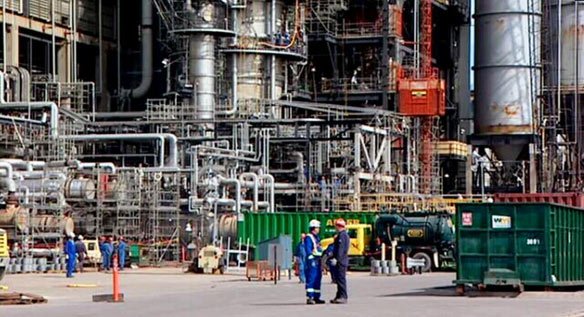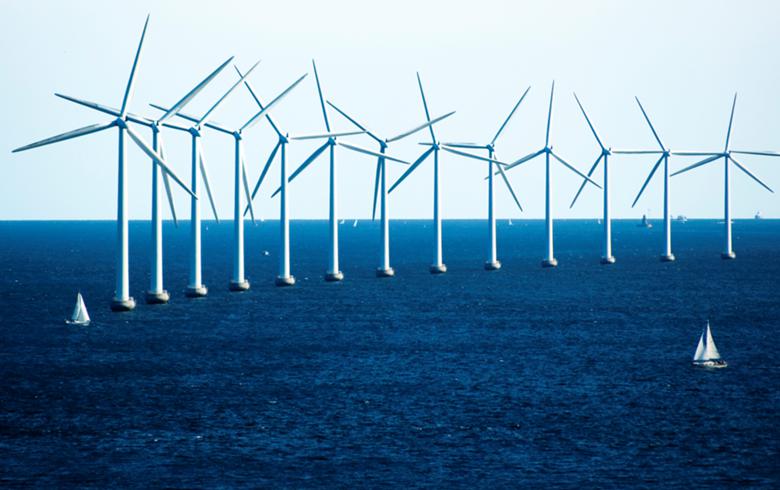Chima Ugwuanyi
 07 January 2013, Sweetcrude, Enugu – Nigeria’s bid to become one of the top 20 economies of the world by 2020 would be a mirage, unless it is able to successfully resolve issues surrounding efficient power generation and supply – the driving force for industrial development.
07 January 2013, Sweetcrude, Enugu – Nigeria’s bid to become one of the top 20 economies of the world by 2020 would be a mirage, unless it is able to successfully resolve issues surrounding efficient power generation and supply – the driving force for industrial development.
Engineer S.I. Ukwuaba, Head, Department of Mechanical Engineering, Petroleum Training Institute, Effurum, Delta State, made the assertion in his paper at a recent Seminar in Enugu, South East, Nigeria.
In the paper, titled ‘Tidal Power Potentials in Nigeria: Investigative Study Of Port Harcourt Estuaries,’ Ukwuaba commended the present government on its determination to see through, the marshal plan on Power.
But, he advocated the use of tidal power to generate electricity, in view of “the huge costal landmass of about 853 kilometres of this great nation,” maintaining that a case study of the characteristics of the coastal waves of Port Harcout, focusing on the feasibilities of siting a Tidal Power Station along the coastline, has already been carried out.
Tracing the origin of tidal power, he said it is the power generated by the energy “inherent in the orbital characteristics of the Earth-Moon System and to a lesser degree, Earth-Sun System.
He added that tidal power is a renewable source of electicity which was “environmental-friendly, does not run out of supply and replenishes fast.”
Ukwuaba identified three types of electrical energy that can be sourced from the ocean or high sea as Wave energy, Tidal energy and Ocean Thermal energy.
The wave energy source, according to him, makes use of the kinetic (moving) enegy in the moving waves of the ocean, which can be collected into a chamber and used to power a turbine, “when the rising water forces the air out of the chamber and the moving air spins a turbine, which can turn an electricity generator”.
He described the tidal energy as the the one from the trapped down tides as they come to the shore, into reservoirs behind dams.
“When the tides drop, the water behind the dam is let out, just as in regular hydro electric power plant”, he said, citing France as one of the countries already making use of this source of energy to power over 240,000 homes.
The expert also described the Ocean Thermal energy as the one which uses the temperature differences in the ocean – warmer surface and colder inside of the water.
He maintained that Power Plants could be built to use this difference of at least 38 degrees fahrenheit between the warmer surface water and the colder surface water, to generate electricity, as already used in both Japan and Hawaii.
He disclosed further that, from the data collected from the Institute of Oceanography and Marine Research, Lagos, and with the use of relevant equation “the possible power that could be generated is 6.9 megawatts for the 3 consecutive years of research, in which the best possible location with the highest tidal reading, was at the bight of Bonny, along the Port Harcout Coastline.
The numerous advantages of tidal power plant as listed by Ukwuaba, included: that, once built, tidal power is free; it produces no greenhouse gases or other wastes; it needs no fuel; it produces electricity reliably; it’s not expensive to maintain, tides are totally predicable and offshore turbines and vertical-axis turbines are not ruinously expensive to build and do not have large enviromental impact.
Engr. Ukwuaba, therefore, strongly opined that Tidal Power Stations could be established in Nigeria, stressing that this would “go a long way in meeting our energy needs and advancing the nation to meet up its development plans.”



